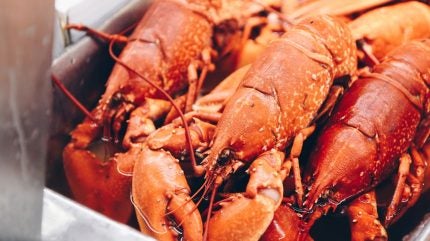
Brazil-based seafood groups Frescatto Company and Prime Seafood are to combine into a single business.
The deal will help both companies boost competitiveness and bolster Frescatto’s position in the global seafood market, they said in a joint statement.

Discover B2B Marketing That Performs
Combine business intelligence and editorial excellence to reach engaged professionals across 36 leading media platforms.
Prime Seafood, “known for its export expertise”, will help to strengthen Frescatto’s export operations, and support its expansion into new markets in China and the US.
Both groups claim to process more than 30 million kilos of fish per year.
Rio de Janiero-based Frescatto booked annual turnover of $260m in 2023, while Prime hit $60m. Together, the seafood processors expect to achieve a total turnover of $400m in 2024.
Frescatto CEO Thiago De Leca said the deal “further boosts the reach of our raw material capture network, increasing our variety of products”.

US Tariffs are shifting - will you react or anticipate?
Don’t let policy changes catch you off guard. Stay proactive with real-time data and expert analysis.
By GlobalDataHe added: “We will be able to bring quality products Prime sells to Frescatto customers, such as lobster, snapper, and golden corvina, among others. Furthermore, Frescatto offers the opportunity to export other species unavailable in the Prime Seafood production line.”
Eduardo Lobo, president of Prime Seafood, will join Frescatto’s board of directors as a result of the transaction.
In a statement, Lobo said the move was “the first major consolidation” in the Brazilian fish industry, helping to give Frescatto a global consumer base.
The deal will also enable “deeper integration of operations” at seafood plants in numerous states in Brazil, Frescatto said.
It will also allow it to access more distribution centres across the country, which will increase production capacity and supply to local and global markets.
Established in 2012, Prime Seafood describes itself as “the Brazilian leader in fish exports”, selling to Canada, the US, Japan, Australia and China, as well as other regions.
More than 300 people are employed at its headquarters in Recife.
The group processes fish and lobsters, working with some 200 suppliers located in seven states, including Bahia, Pernambuco, Paraíba, Rio Grande do Norte, and Ceara, to name a few.
Following the deal, Frescatto will also gain access to Prime’s two international certifications, the IFS food safety certification and social responsibility seal, SMETA.
Set up in 1944, Frescatto processes fish from Brazil, as well as Chile, Argentina, Alaska and Canada and other countries. It manages four production sites in Brazil, located in São Paulo, Contagem, Recife, and the country’s capital, Brasília.
Some 900 workers are employed by the company.
The group produces a range of fresh and frozen fish for retail under two brands, Porto Frescatto and Buono Pesca. Its portfolio includes salmon, cod, sea bream, tuna and shrimp, and seafood like mussels, octopus and lobster, among other species.
Frescatto also markets to foodservice. Just Food has asked the company for more information on its customers and where they are located in Brazil.
De Laca added that the transaction “will bring many opportunities for both companies’ current employees and new professionals.
“We are excited about this merger’s benefits to our companies and the entire seafood value chain. The two companies have always believed in the sector’s potential, and that fish will be the next star of the Brazilian agribusiness sector”.


